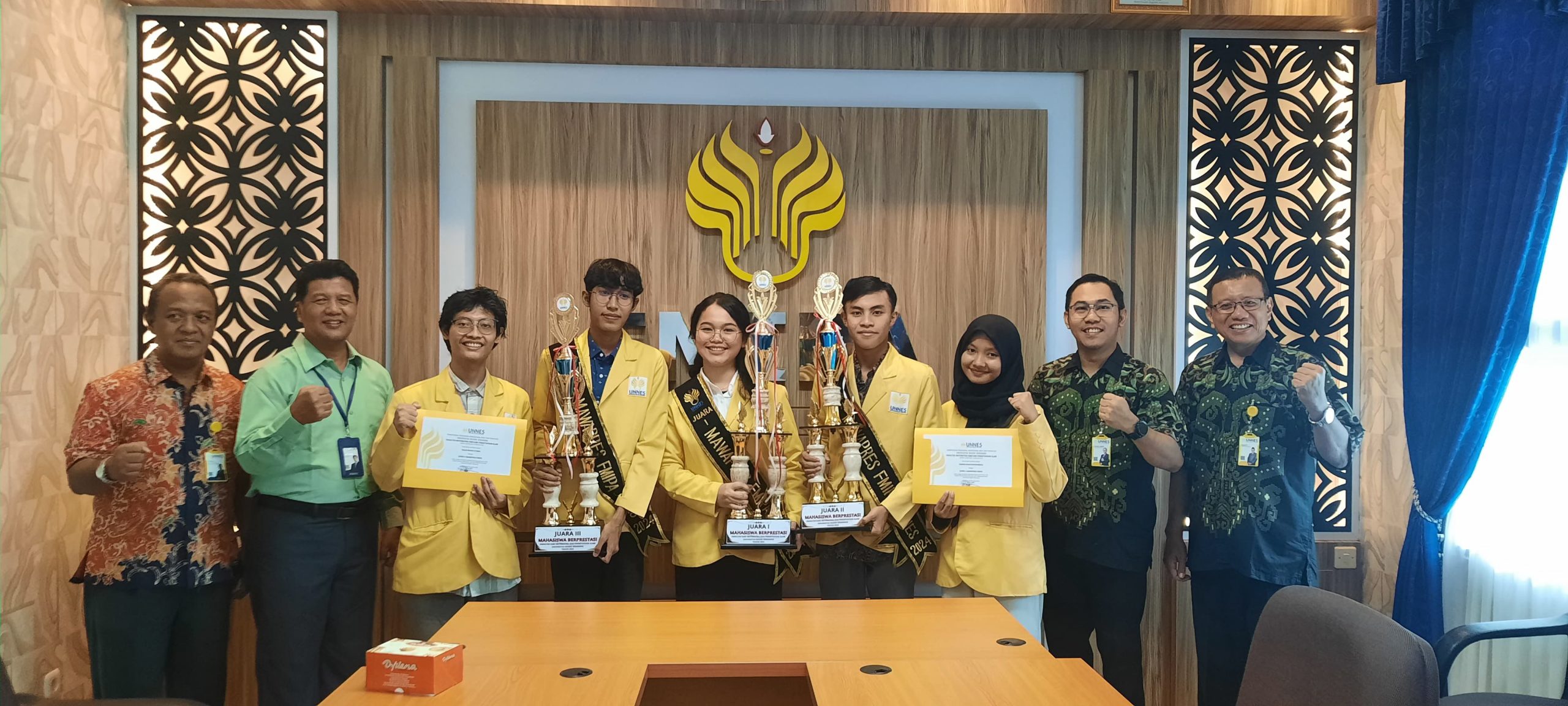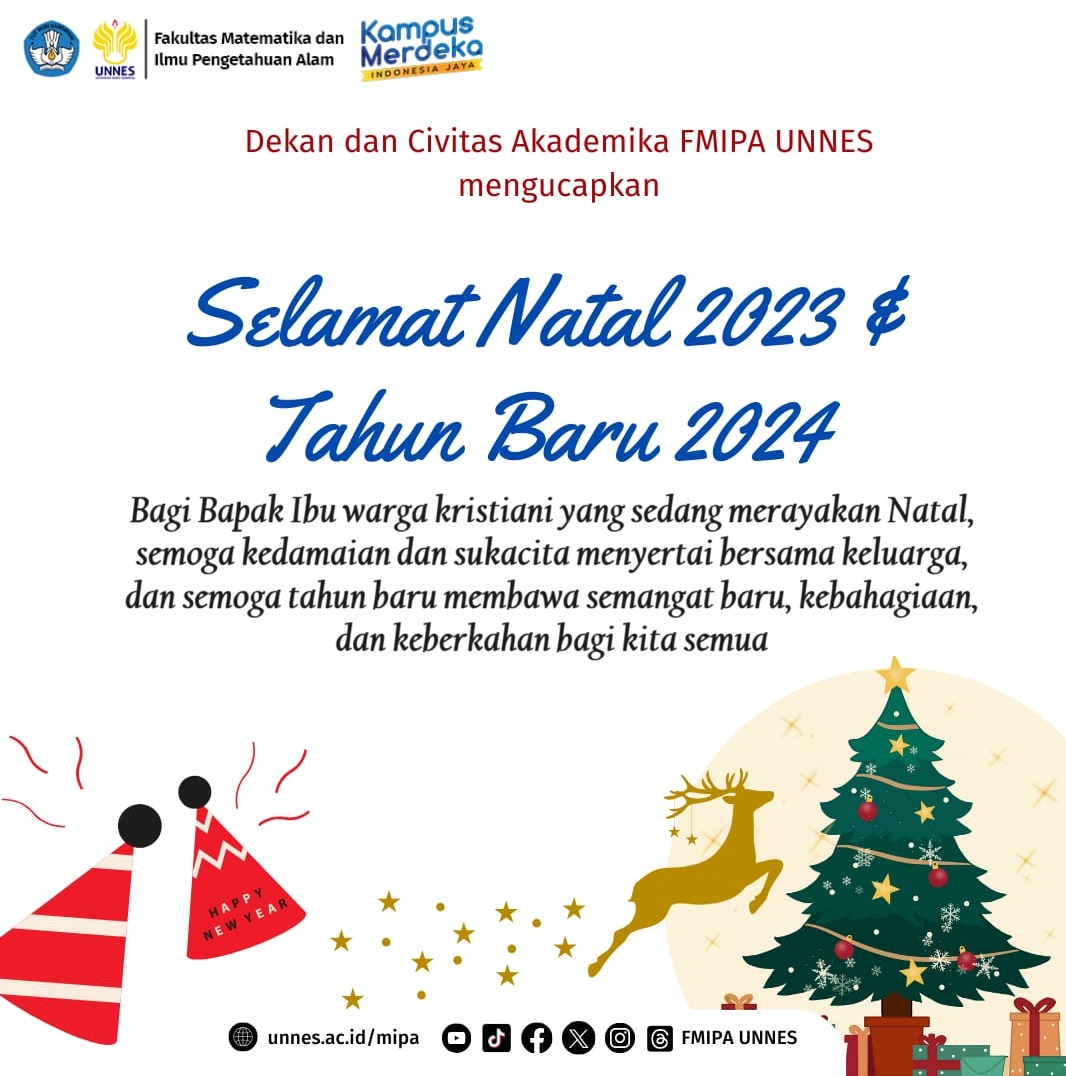
Kholiq Budiman, S.Pd., M.Kom. is a lecturer in the Department of Computer Science, Faculty of Mathematics and Natural Sciences, UNNES, specializing in Software Engineering. Several research studies related to Information Systems that he has conducted have been published in reputable national and international journals. In 2021, Kholiq Budiman also received the Best Innovation Award in the Lecturer Category at UNNES Innovation Award.
Technological innovation is a necessity for a nation to achieve its dreams, aspirations, and independence. With national independence, a country can develop more advanced without relying on other nations. National independence creates a conducive environment and great opportunities for the government to implement economic recovery and development in various sectors (Blanco et al., 2020). One form of national independence in the field of technology is the realization of an information system within an enterprise.
The presence of information systems in a company has transformed data processing patterns into information that previously existed in a manual environment. The same change can also be seen from the perspective of end-users, who operate the information system. This environmental change can cause culture shock, necessitating the habituation of users to their new environment (Ivanova, 2021).
Multinational companies engaged in import-export activities have significant transactions within their organizations, which drive the need for a capable quotation (bidding) information system. Proficient companies usually subscribe to an Enterprise Resource Planning (ERP) information system. However, due to incompatibility with business procedures or processes and the high rental costs, these information systems are often abandoned and not reused. The common issue encountered with ERP software packages is the lack of compatibility between the system and the organization’s required processes and information (Abdel-Haq et al., 2018). The mismatch between the software’s design and the company’s needs poses problems for users and stakeholders. Technical difficulties, such as interfacing problems within the system and hardware issues, can frustrate users and reduce their satisfaction. If users are dissatisfied with the software they are using, they will seek ways to stop using the system. End User Computer Satisfaction (EUCS) can be used as a signal for management to address these difficulties and mismatches (Sebetci, 2018).
By creating an Enterprise Resource Planning (ERP) information system that meets the company’s standards in terms of business and is expected to be compatible with various industries in Indonesia, we can achieve Technological Independence, especially in the field of ERP information systems. This creation must be well-planned and accompanied by proper implementation to develop a functional and sustainable ERP system.
In the study conducted by Budiman et al. (2021), business process re-engineering can be applied as an initial status analysis, followed by system redesign using Business Process Modeling Notation (BPMN), then the development and testing of prototypes using extreme prototyping and black-box testing, and finally, the implementation process using parallel implementation methods. This approach can enhance the sustainability of the built ERP system. K. Budiman et al. (2021) stated that a well-planned system built with business process re-engineering can increase value and improve the sustainability of the system.
References:
Abdel-Haq, M. S., Chatti, H., & Asfoura, E. (2018). Investigating the Success and the Advantages of Using ERP System in KSA Context. Engineering, Technology & Applied Science Research, 8(6), 3631–3639. https://doi.org/10.48084/etasr.2367
Blanco, I., Salazar, Y., & Bianchi, I. (2020). Urban governance and political change under a radical left government: The case of Barcelona. Journal of Urban Affairs, 42(1), 18–38. https://doi.org/10.1080/07352166.2018.1559648
Budiman, K., Putra, A. T., Alamsyah, Sugiharti, E., Muslim, M. A., & Arifudin, R. (2021). Implementation of ERP system functionalities for data acquisition based on API at the study program of Universities. Journal of Physics: Conference Series, 1918(4). https://doi.org/10.1088/1742-6596/1918/4/042151
Budiman, Kholiq, Subhan, S., & Efrilianda, D. A. (2021). Business Process re-engineering to support the sustainability of the construction industry and sales commodities in large scale transaction during Covid 19 with integrating ERP and Quotation System. Scientific Journal of Informatics, 8(1), 84–91. https://doi.org/10.15294/sji.v8i1.27969
Ivanova, M. (2021). Digital transformation of management in the global pandemic. International Scientific Journal “Industry 4.0,” 75(2), 72–75.
Sebetci, Ö. (2018). Enhancing end-user satisfaction through technology compatibility: An assessment on health information system. Health Policy and Technology, 7(3), 265–274. https://doi.org/10.1016/j.hlpt.2018.06.001




